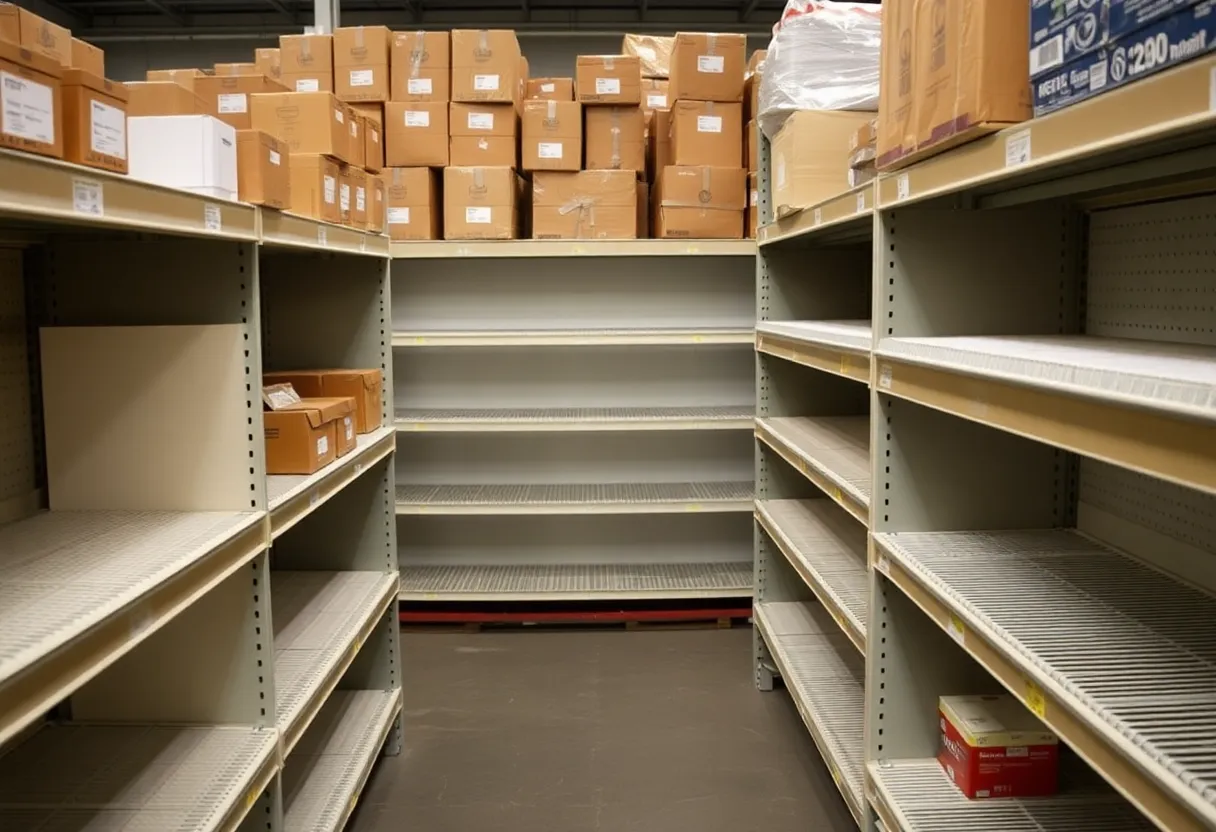

The stark reality of food shortages in Michigan food banks due to recent USDA delivery cancellations.
Want to target the right audience? Sponsor our site and choose your specific industry to connect with a relevant audience.
Prominent brand mentions across targeted, industry-focused articles
High-visibility placements that speak directly to an engaged local audience
Guaranteed coverage that maximizes exposure and reinforces your brand presence
Interested in seeing what sponsored content looks like on our platform?
May’s Roofing & Contracting
Forwal Construction
NSC Clips
Real Internet Sales
Suited
Florida4Golf
Click the button below to sponsor our articles:
Sponsor Our ArticlesMichigan faces a concerning situation as the USDA cancels $4.3 million worth of emergency food deliveries, jeopardizing 2 million meals for food banks statewide. The impact of this decision, driven by ongoing budget cuts and reduced communication from the USDA, raises significant concerns over food supply for vulnerable communities. Local networks fear serving 36,000 fewer households this year, as programs dependent on these resources risk severe shortages. As state officials advise caution on spending related to federal food programs, the need for timely support becomes critical for Michigan’s food assistance efforts.
The city of Michigan is facing a troubling situation as the U.S. Department of Agriculture (USDA) has made the shocking decision to cancel $4.3 million worth of emergency food deliveries. This unfortunate news breaks the hearts of many as these canceled deliveries were set to provide a whopping 2 million meals to food banks across the state. The arrival of these meals was eagerly anticipated between April and August, and their absence now creates a significant gap in food supply.
Initially, some concerning news had already trickled in when it was revealed that some food orders had been returned. This led to increasing uncertainty about what might happen next. Fast forward to March 25, when the Food Bank Council officially received confirmation about the cancellation of the meals from the USDA. The nature of the canceled shipments includes an array of important food items that many vulnerable communities depend on. Stalwarts like boneless chicken breasts, pulled pork, eggs, shredded cheese, turkey breasts, and chicken leg quarters were all part of the expected shipment.
The cancellations are not happening in isolation. There’s been an ongoing trend of budget cuts affecting various federal food assistance programs, especially noted during the previous administration. USDA representatives have claimed that the current administration has put forth “unsustainable programming” expectations that rely heavily on Commodity Credit Corporation funds. Meanwhile, the USDA has reportedly spent more than $166 million in FY 2025 for the Emergency Food Assistance Program (TEFAP) and made additional investments in food assistance efforts despite these cancellations.
For the Food Bank Council of Michigan, which serves as a vital network supporting seven food banks across all 83 counties, the cancellation presents serious concerns. The organization has expressed worries over the lack of communication from the USDA regarding both the reasons behind these cancellations and support moving forward. The communication gap raises significant questions for food banks that depend heavily on these resources to fulfill their annual budgets.
The chilling realization that food banks could potentially face serving 36,000 fewer households this year due to the shortages caused by these canceled orders isn’t just theoretical—it’s becoming a critical concern. Local food pantries, including Gleaners Community Food Bank and Feeding America West Michigan, are particularly reliant on the reliable supply of food from the USDA. With current circumstances, Feeding America West Michigan has even put an indefinite pause on several truckloads of fresh food that were scheduled for delivery, further impacting local pantries.
The situation has grown more dire with the release of new recommendations from the Michigan Department of Education, advising against moving forward with spending funds associated with the federal Commodity Supplemental Food Program due to the uncertainty surrounding future reimbursements. The overall mood is one of distress as everyone feels the ripple effects of the cancellations and funding uncertainties.
As Michigan grapples with this pressing need, the hope is that additional support will materialize soon. In the meantime, many are left crossing their fingers and hoping for some much-needed responses from the USDA. The clock is ticking, and communities across Michigan are waiting in anticipation of help that may, or may not, arrive in time.
News Summary U.S. senators have introduced the Strengthening VA Patient Advocacy for Rural Veterans Act,…
News Summary A newly formed patient advocacy group, Ucan Ireland, is dedicated to enhancing access…
News Summary The Health Equity Alliance (HEAL) has closed its doors permanently, significantly impacting the…
News Summary The International Chamber of Commerce (ICC) has announced an upgrade to its ICC…
News Summary The Singapore International Arbitration Centre has introduced the SIAC Gateway, an innovative online…
News Summary WellSky has launched its new CarePort Care Transitions Dashboard Suite to improve case…